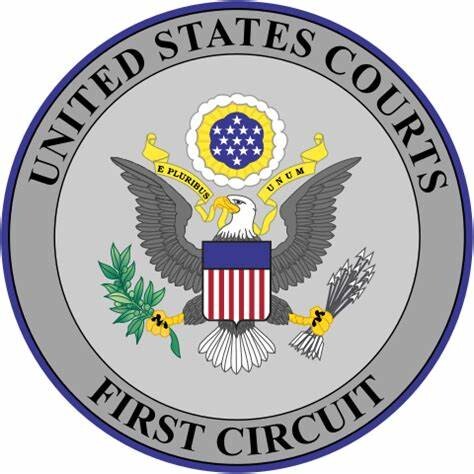The First Circuit vacated the judgment of the trial court against Plaintiff and a third-party defendant, holding that because the parties were unable to establish that no defendant shared state citizenship with any plaintiff remand was required. This lawsuit serves as a reminder that subject matter jurisdiction cannot be taken for granted and that special attention need be paid when attempting to invoke diversity jurisdiction if a party is not a natural person or a corporation.
Plaintiff brought this lawsuit in federal district court and the Defendants counterclaimed. No party presented a possible basis for federal jurisdiction other than diversity jurisdiction under 28 U.S.C. 1332. After six years of litigation, a trial was held and the trial court entered an eight-figure judgment against Plaintiff and a third-party defendant. The First Circuit vacated the judgment, holding that the parties have been unable to establish that no defendant shares state citizenship with any plaintiff and therefore, remand was required so the parties can demonstrate that there is complete diversity.
As to the citizenship of the parties, BRT’s complaint alleged only that “there is complete diversity between the parties “because BRT was a Massachusetts limited liability company (LLC) with a usual place of business in Massachusetts and defendants Malden Storage LLC (“Malden”), Plain Avenue Storage LLC (“Plain”) and Banner Drive Storage LLC (“Banner”) were each Delaware LLCs with usual places of business in Illinois. Defendants replied in relevant part only by alleging substantially the same facts, i.e., that Malden and Plain were both Delaware LLCs with principal places of business in Northbrook, Illinois. These allegations were plainly insufficient because, as a matter of black letter law,”[t]he citizenship of an unincorporated entity… is determined by the citizenship of all of its members.” Pramco, LLC ex rel. CFSC Consortium, LLC vs. San Juan Bay Marina, Inc., 435 F.3d 51, 54–55 (1st Cir. 2006) (applying this rule to an LLC); see also, D.B. Zwirn Special Opportunities Fund, L.P .vs. Mehrota, 661 F.3d 124, 125 (1st Cir. 2011) (per curiam). But neither plaintiff nor defendants had yet provided any information about their members’ citizenship.
Noticing this deficiency in the pleadings, the district court ordered plaintiff to show cause why the action should not be dismissed for lack of subject matter jurisdiction. The order pointed out that BRT’s complaint failed to “allege that the citizenship of every member of BRT Management LLC is diverse from the citizenship of every member of Plain Avenue Storage, LLC, Malden Storage, LLC and Banner Drive Storage, LLC.” BRT responded by alleging that its sole member was a natural person who was a resident of Massachusetts, that the sole member of both Malden and Plain was CBanner Storage LLC (“CBanner”), a “Delaware LLC,” and that the sole member of Banner was Banner Storage Holding LLC, “also a Delaware LLC.” Although the members of all defendants were also LLCs, BRT did not allege the citizenship of any members of those LLCs.
The district court then issued a second order to show cause, pointing out that BRT’s supplemental allegations were still insufficient because they failed to identify the citizenship of the members of the LLCs that were members of Malden, Plain and Banner. Because LLCs take the citizenship of all of their members, without the members’ citizenships BRT had “failed to properly allege diversity jurisdiction.” Given a second chance, BRT responded that after diligent investigation it was unable to identify the citizenship of those members and requested limited jurisdictional discovery to do so.
Following limited discovery, the parties filed a “stipulation regarding diversity jurisdiction “purporting to “stipulate that there exists complete diversity of citizenship” between plaintiff, defendants, and third-party defendant Brian Wallace(the sole member of BRT). The stipulation also detailed several facts, including the states of organization and principal places of business for Malden and Plain; the sole member of both of those entities, CBanner Storage LLC; and C Banner’s sole member, B-Dev Manager LLC.4The stipulation did not identify the citizenship of the members of B-Dev Manager LLC, which was necessary to determine the citizenship of CBanner and, accordingly, defendants Malden and Plain. The stipulation further stated that there were “more than eighty members of Banner Drive Storage, LLC, including various individuals, LLCs, and trusts,”5and that at least one investor in Banner was a Massachusetts resident. Both parties accordingly agreed to dismiss Banner from the action so that diversity would not be destroyed.
KEY TAKEAWAY:
Diversity jurisdiction allows federal courts to adjudicate controversies between citizens of different states. U.S. Const. art. III, §2, cl.1; 28 U.S.C. §1332. Under the federal statute, as relevant here, diversity must be complete; that is, no plaintiff may be a citizen of the same state as any defendant. See Strawbridge v. Curtiss, 7 U.S. (3Cranch)267 (1806); Halleran v. Hoffman, 966 F.2d 45, 47 (1st Cir. 1992). “The burden of establishing federal diversity jurisdiction rests on… the party invoking federal jurisdiction.” Carrozza v. CVS Pharm., Inc., 992 F.3d 44, 51 (1st Cir. 2021). Keyto establishing diversity jurisdiction are the citizenships of the parties before the court. Natural persons are citizens of the state in which they are domiciled. SeeAponte-Dávila v. Municipality of Caguas, 828 F.3d 40, 46(1st Cir. 2016). But for legal entities, the Supreme Court has explained that the relevant citizenship for diversity purposes is generally the citizenship of the entity’s members. There is a “limited exception for corporations”; a corporation is “considered a citizen of the State where it has its principal place of business,” as well as a citizen of its state of incorporation. Americold Realty Tr. v. Conagra Foods, Inc., 577 U.S. 378, 381 (2016); 28 U.S.C. §1332(c). “But Congress never expanded this grant of citizenship to include artificial entities other than corporations, such as joint-stock companies or limited partnerships.” Americold, 577 U.S. at 381.So, with exceptions not relevant here,7non-corporatelegal entities take the citizenship of all of their members. Id. It is therefore the members’ citizenships that are relevant for jurisdictional purposes, not the principal place of business or the state of organization of the entity. See Cardenv. Arkoma Assocs., 494 U.S. 185, 196–97 (1990) (noting Congress’s designation of principal place of business and state of incorporation as relevant for corporations, but that”[n]o provision was made for the treatment of artificial entities other than corporations”).
If the members are themselves unincorporated associations, then those members’ citizenships are relevant too; the process is “iterative,” and a party must “trace the citizenship of any member that is an unincorporated association through however many layers of members or partners there may be.” D.B. Zwirn, 661 F.3d at 126–27; see also, West v. Louisville Gas & Elec. Co., 951 F.3d 827, 830 (7th Cir. 2020) (noting that jurisdictional statement ultimately revealed 17 layers of ownership of LLC defendant, which court examined to ensure that “every branch of the chain led to a corporation that is neither incorporated in Indiana nor has a principal place of business there”). Parties cannot establish federal subject matter jurisdiction merely by agreeing that the basis for jurisdiction is satisfied. See Wis. Dep’t of Corr. v. Schact, 524 U.S. 381, 389 (1998) (“The presence of [a]nondiverse party automatically destroys original jurisdiction: No party need assert the defect. No party can waive the defect or consent to jurisdiction.”); Am. Fiber & Finishing, Inc. v. Tyco Healthcare Grp., LP, 362 F.3d 136, 139(1st Cir. 2004) (“[P]arties cannot confer subject matter jurisdiction on a federal court ‘by indolence, oversight, acquiescence, or consent.'” (quoting United States v. Horn,29 F.3d 754, 768 (1st Cir.1994)).






